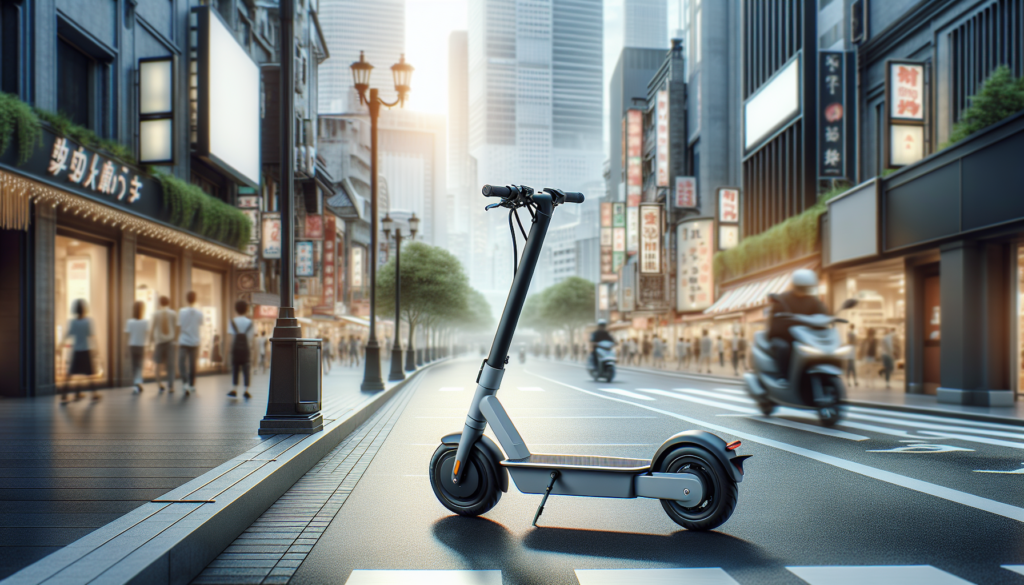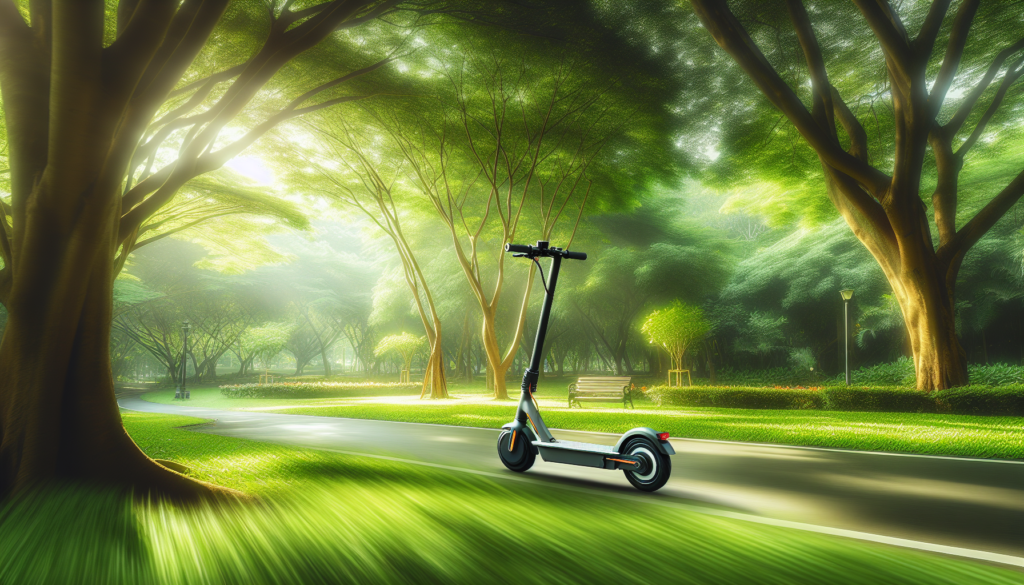
With the rise of eco-friendly transportation alternatives, electric scooters have surfaced as a popular choice for urban commuting and leisurely rides alike. As you embark on your journey to find the perfect electric scooter, a crucial decision looms: should you opt for a standing model like the Eko Life eDegree CS1, which offers a lightweight design and a 35km range for RM 1,588, or would a seated option, such as the eDegree FS1 with its added comfort and slightly higher range, be more suited to your lifestyle at RM 2,788? Understanding the distinct advantages of both standing and seated electric scooters is essential in making the right choice that caters to your needs and preferences.
Understanding Electric Scooters: Types and Features
Electric scooters have gained significant popularity as a convenient and eco-friendly mode of transportation. When it comes to choosing between a standing or seated electric scooter, it’s essential to understand the different types and features available in the market. The Eko Life eDegree CS1, a standing model, weighs in at 14kg, making it lightweight and easy to maneuver. It is equipped with a 36V 8AH battery, providing a range of up to 35km, perfect for short commutes around the city. With a price point of RM 1,588 and a one-year warranty, it offers an attractive option for those looking for a budget-friendly electric scooter that doesn’t compromise on performance.
On the other hand, the eDegree FS1 is a seated electric scooter, designed for a more comfortable riding experience. Weighing 23kg and powered by a 48V 10AH battery, it provides a slightly longer range of 35-40km. Priced at RM 2,788, it appeals to users who prioritize comfort over compactness and may use their scooter for longer rides. Understanding these types and their features is crucial in making an informed decision based on your lifestyle, commuting needs, and personal preferences.
The Advantages of Standing Electric Scooters
Standing electric scooters, like the Eko Life eDegree CS1, offer a unique blend of portability and agility. Weighing just 14kg, this lightweight design makes it easy to carry and maneuver through busy urban environments. With a battery capacity of 36V 8AH and a commendable range of 35km, riders can enjoy the freedom of zipping around towns without the encumbrance of a heavier form of transportation. The sleek and compact design not only aids in ease of storage but also contributes to a more exhilarating riding experience, as standing provides a heightened sense of balance and control over the scooter’s movements.
Another significant advantage of standing electric scooters is their cost-effectiveness. Priced at RM 1,588, the Eko Life eDegree CS1 becomes an attractive option for budget-conscious consumers looking for efficient and enjoyable commuting solutions. The one-year warranty further ensures peace of mind, allowing riders to focus on the excitement of their travels rather than worrying about potential mechanical issues. Overall, standing electric scooters present an ideal choice for those seeking an eco-friendly and efficient mode of transport while embracing a more active lifestyle.
The Benefits of Seated Electric Scooters
Seated electric scooters offer a range of benefits that cater to different preferences and needs. One primary advantage is the increased comfort they provide, especially over longer distances. The eDegree FS1, for instance, has a weight of 23kg and a robust 48V 10AH battery, allowing for a range of 35-40km. This extra stability and comfort can significantly enhance the riding experience, particularly for those who may find standing for extended periods uncomfortable or challenging. With the option to sit down, riders can enjoy the journey without the fatigue that often comes with standing scooters.
Moreover, seated electric scooters are often favored by individuals who may have mobility issues or those who simply prefer a more relaxed riding position. The eDegree FS1 is designed not only for practicality but also for user-friendliness. With a price of RM 2,788, it may be a more significant investment than its standing counterpart, the Eko Life eDegree CS1. However, the added comfort, combined with a slightly higher battery capacity, makes it an excellent choice for commuters and leisure riders alike, who value ease alongside performance.
Comparing Eko Life eDegree CS1 and FS1 Models
When considering an electric scooter, the choice between the Eko Life eDegree CS1 and eDegree FS1 models primarily comes down to your lifestyle and preferences. The eDegree CS1, a standing escooter, weighs 14kg and is equipped with a 36V 8AH battery, offering a maximum range of 35km. This model is ideal for urban commuting, especially for those who appreciate the agility and compactness of a standing scooter. At a price of RM 1,588, it presents a cost-effective solution for those who need a lightweight and portable option for short to moderate distances. Furthermore, its 1-year warranty provides peace of mind for buyers concerned about durability and reliability.
In contrast, the eDegree FS1 is a seated escooter, weighing 23kg and featuring a robust 48V 10AH battery, enabling a range of 35-40km. With a price point of RM 2,788, the FS1 caters to users who prefer a more comfortable riding experience, especially during longer commutes or leisure rides. The additional weight could be a consideration for portability, but the enhanced stability and comfort that comes with sitting can greatly benefit individuals who may not be able to stand for extended periods. Making a choice between these two models ultimately hinges on your unique commuting needs and comfort level with the form factor of the scooter.
Weight Considerations: Which Scooter is More Convenient?
When it comes to choosing between a standing or seated electric scooter, weight can play a significant role in your overall experience. The Eko Life eDegree CS1, a standing scooter, weighs in at just 14kg. This lightweight design makes it highly portable, allowing users to carry it easily when needed. For those who prioritize mobility and convenience, especially in urban settings where carrying the scooter up stairs or onto public transport may be necessary, the CS1 could be the ideal choice. Its compact build ensures that it can navigate tight spaces with ease, allowing riders to maneuver through crowds without hassle.
On the other hand, the eDegree FS1, which is a seated electric scooter, weighs 23kg. While it is heavier than the CS1, it offers the comfort of a seat, making it suitable for longer rides or for individuals who may struggle with standing for extended periods. The added weight might be a consideration for some, especially if frequent lifting or transportation is needed. However, the FS1 provides greater stability and comfort, which can enhance the riding experience for those who value these aspects over the ease of portability. Ultimately, your choice will depend on your specific needs and how you plan to use your electric scooter.
Battery Life and Range Analysis: Making the Right Choice

When it comes to choosing between standing and seated electric scooters, battery life and operational range are crucial factors to consider. The Eko Life eDegree CS1, a standing scooter, is equipped with a 36V 8AH battery, offering a solid range of up to 35 kilometers on a single charge. This makes it an excellent choice for short commutes and urban travel. Its lightweight design, weighing in at only 14 kg, allows for easier maneuverability and portability. This scooter is perfect for those who frequently navigate city life and prefer a more dynamic riding experience.
On the other hand, the eDegree FS1 seated scooter boasts a more powerful 48V 10AH battery that provides a range between 35-40 kilometers. Weighing 23 kg, it is a bit heftier, yet it offers greater comfort and stability for longer rides, making it ideal for in-depth explorations or longer journeys. Additionally, the seated design enhances the riding experience for individuals looking for a more relaxed way to commute. The choice between the two will ultimately depend on whether you prioritize agility and portability with the CS1 or comfort and extended travel with the FS1.
Price Comparison: Finding the Best Value for Your Needs
When considering an electric scooter, price often plays a pivotal role in the decision-making process. The Eko Life eDegree CS1, a standing scooter, is priced at RM 1,588, making it a more budget-friendly option for those seeking efficient and economical transportation. Weighing in at just 14kg, it’s easy to maneuver, especially for those living in urban environments where portability is key. With a reliable battery capacity of 36V 8AH and a range of 35km, it effectively meets the daily commuting needs of many users without breaking the bank.
On the other hand, if comfort and added features are your priorities, the eDegree FS1, a seated electric scooter, is an investment worth considering at RM 2,788. Weighing 23kg and boasting a robust battery capacity of 48V 10AH, it extends ranges between 35-40km. While it does come at a higher price point, the comfort of sitting while riding and the additional stability it provides may outweigh the cost for many users. Assessing your priorities and determining what features are essential can help you find the best value for your needs as you navigate the options available in the electric scooter market.
User Experience: What to Expect from Each Type of Scooter
When it comes to user experience, the choice between a standing electric scooter like the Eko Life eDegree CS1 and a seated option like the eDegree FS1 significantly affects the ride. The standing scooter, designed to be lightweight at just 14 kg, is perfect for zipping around urban areas. Its compact design allows for easy maneuverability, making it an ideal choice for those who enjoy a more active riding position. With a comfortable battery range of 35 km and a straightforward warranty of one year, it offers a no-fuss option for those looking to navigate busy streets. However, the ride can become tiring on longer trips, especially if you’re not used to standing for extended periods.
On the other hand, the seated electric scooter is tailored for those who seek comfort during their rides. Weighing in at 23 kg, the eDegree FS1 features a stronger battery that supports a range of 35-40 km, making it better suited for longer journeys without sacrificing comfort. Thanks to its seating, riders can enjoy a more relaxed experience, particularly on bumpy roads or during longer commutes. While the price point is higher at RM 2,788, the benefits of comfort and stability may outweigh the cost for some users. Understanding what you value—mobility versus comfort—can guide your decision on which type of electric scooter is best for you.
Final Thoughts on Your Electric Scooter Choice

Ultimately, the decision between a standing or seated electric scooter comes down to your personal preferences and needs. If you’re looking for a lightweight, easily portable option for short commutes, the Eko Life eDegree CS1 standing scooter offers an impressive balance of convenience and performance with its sleek design, lightweight construction, and decent range. However, if comfort during longer journeys is your priority, the eDegree FS1 seated electric scooter provides a reliable option with a higher battery capacity and more range, making it ideal for extended travels.
As electric scooters continue to gain popularity due to their eco-friendly nature and practicality, it’s vital to consider your commute style and preferences before making a purchase. Whether you opt for the compact and agile standing scooter or the comfortable seated model, investing in an electric scooter is not just about convenience, but also about embracing a sustainable mode of transportation that aligns with your lifestyle. Remember to weigh the features, price, and utility of each option, and choose the one that best fits your unique ride experience.

Disappointed as I couldn’t find a summary to comment about.
Thank you for reaching out to us, Amanda. Sorry to hear that you’re disappointed with the blog post as it didn’t have a summary. We appreciate your feedback and would like to assist you further. If you have any specific comments or suggestions, please don’t hesitate to share them with us. We’re here to listen. You can contact us at [email protected] or +60 3-7890 3042. We apologize for any inconvenience caused and hope to hear from you soon.
Maybe we can consider sharing more information in the summary section to keep readers engaged.
Hi Ethan, thank you for your suggestion! We’ll definitely consider sharing more information in the summary section to engage our readers. Your input is highly valued and will help us improve our content. Feel free to reach out to us at [email protected] or give us a call at +60 3-7890 3042 to discuss further.
I agree, an intro that doesn’t introduce the topic is like missing a line connecting your entire story together.
Thank you, Lina, for sharing your thoughts! We completely understand the importance of a strong introduction that sets the tone for the rest of the content. Perhaps we can rework our blog’s intro to better connect with our readers. If you have any suggestions or ideas, please feel free to share them with us at [email protected] or call us at +60 3-7890 3042. We’re always eager to learn and improve.